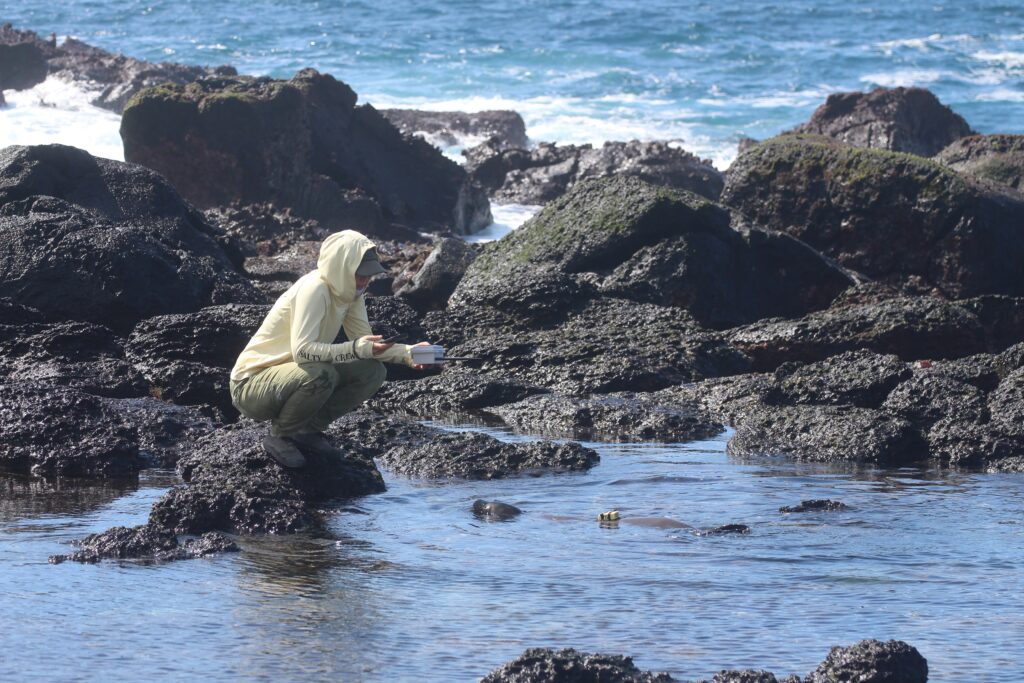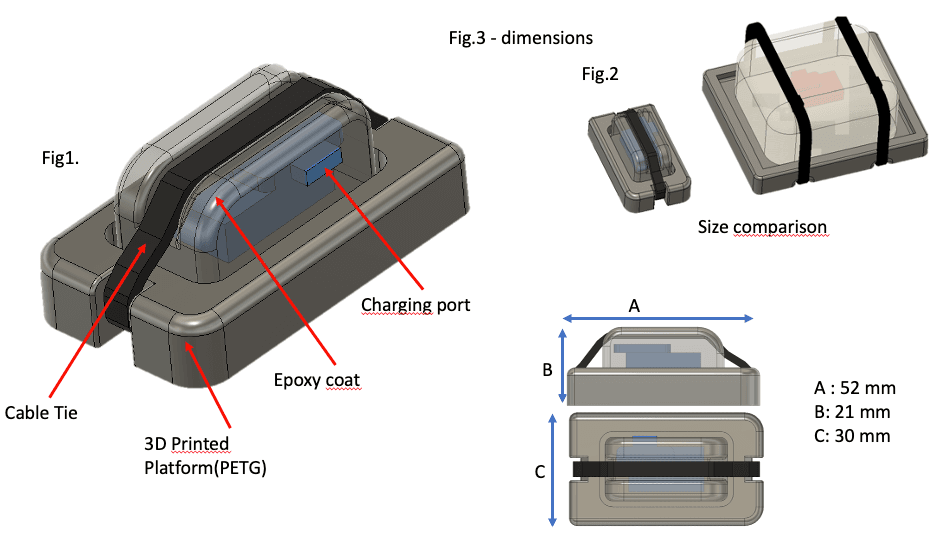The Galápagos Sea Lion Project
Understanding the intricate social behaviors of wildlife is crucial, especially in the face of global environmental changes. Alexandra Childs, researcher at the University of Bielefeld, is delving deep into the early life interactions of Galápagos sea lions to uncover how these relationships influence their survival and foraging success as adults. Supporting this research is our ProxLogs system, which is revolutionising the way social interactions are studied.

The Heart of the Research
Alex’s core research question centers on the importance of early life interactions among conspecifics (members of the same species) in Galápagos sea lions. By examining how these interactions develop and remain stable over the first year of life, the research aims to shed light on:
- The role of personality, body condition, age, and environmental conditions in social interactions.
- The impact of these early relationships on later life fitness and cooperative hunting behaviors.
- The effects of environmental phenomena like El Niño and La Niña on population dynamics.
Understanding these factors is vital, as it could inform conservation strategies and highlight the importance of protecting pupping areas to ensure these crucial interactions can occur undisturbed.
Why ProxLogs?
When it came to selecting a technology to monitor sea lion interactions, Alex chose our ProxLogs system for several compelling reasons:
- Compact and Reusable Design: The small size of the ProxLogs was perfect for minimizing impact on the animals. Their reusability was essential for multiple seasons of prolonged study.
- Remote Data Download: The ability to download data remotely provided a safety net. Even if a logger was lost, the data collected up to that point was secure.
- Real-Time Monitoring: Regular data downloads every 2-3 days allowed Alex to ensure the loggers were functioning correctly, providing peace of mind in a study where losing data from even one individual could jeopardize the project.
When I found out I could download the data remotely, I was sold
– Alexandra Childs
Technical Innovations: Crafting a Watertight Solution

One of the significant challenges was developing a waterproof casing for the loggers that still allowed for recharging. This is where collaboration with Aurélien Hubac from HBC Creations became invaluable.
Alex needed a system that would enable quick and easy swapping of loggers while ensuring they remained secure on the sea lions. Through a stroke of luck and a mutual connection, Alex teamed up with Aurélien, who had the expertise to refine the initial idea.
With precise measurements and innovative thinking, they created 3D-printed molds using silicone and epoxy to craft watertight casings. This collaboration not only solved the waterproofing challenge but also streamlined the deployment methodology, making it suitable for studying young sea lions.
Field Experiences: Navigating Challenges and Discoveries
Fieldwork is rarely without surprises, and Alex’s experience was no exception. One memorable moment involved the unexpected loss of two loggers. Initially worried they had been washed away, Alex and the team used the mobile app feature of the ProxLogs system to locate them.
“Both times we spent the whole afternoon searching… the app led us straight to the crack where they had been wedged in. I doubt we would have found them without the app!” Alex shared.
The mobile app proved to be an indispensable tool, not just for data collection but also for equipment recovery.
Looking Ahead: The Future of Sea Lion Research
While data analysis is still underway, the potential implications of Alex’s research are vast. The findings could:
- Encourage further research exploring early-life interactions beyond the mother-pup pair in otariid species.
- Inform policymakers about the critical importance of protecting pupping areas to allow these essential interactions.
- Validate non-invasive snapshot interaction data collection methods, potentially applying them to other species.
Moreover, with our ongoing development of a new logger featuring a temperature sensor and accelerometer, future research could delve even deeper, providing data on activity over the span of months.
Personal Insights: Reflections on Using ProxLogs
When asked about the experience with our loggers, Alex highlighted:
- Most Loved Aspect: The reusability of the loggers, allowing for ongoing use in future projects.
- Biggest Challenge: Difficulty downloading data when a sea lion is lying on top of the logger and communication limitations when other loggers are nearby.
Alex advises other researchers considering similar technology to focus on finding the appropriate deployment method and to embrace the reusability of the equipment.
Conclusion
Alex’s research underscores the invaluable role technology plays in wildlife studies. Our ProxLogs system has not only facilitated groundbreaking research into the social behaviors of Galápagos sea lions but also opened doors for future ecological insights.
As we continue to innovate and develop our products, we’re excited to support researchers like Alex in uncovering the mysteries of the natural world. Together, we’re making strides toward a deeper understanding of wildlife and the delicate ecosystems they inhabit.
Interested in learning more about our ProxLogs system and how it can enhance your research? Contact us today and join the frontier of wildlife technology integration.
[researcher_card]